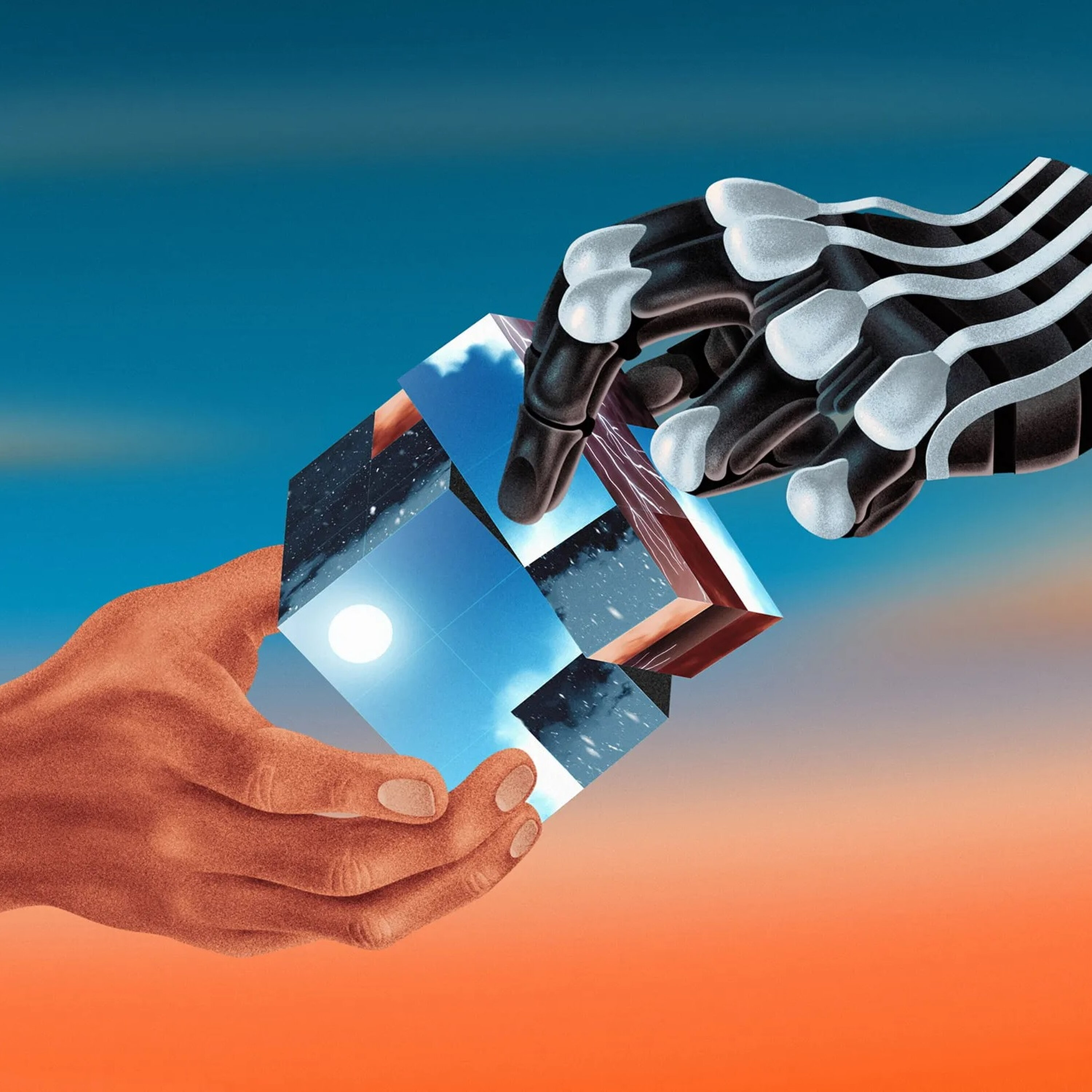
Here's Why AI is Changing How We Predict The Weather

Here's Why
Deep Dive
Shownotes Transcript
This is an iHeart Podcast. Did you know that 92% of U.S. hiring decision makers expect to face challenges?
Finding qualified candidates this year? The costs of recruiting, advertising, interviewing, and onboarding can add up quickly. But Express Employment Professionals is your hiring solution. Go to expresspros.com today. Express streamlines your hiring process, saving both time and money. Whether you need contract staff or your core team member, visit expresspros.com.
Thrivent can help you plan your finances for the people, causes, and community you love. What makes Thrivent different? Financial services and generosity programs are combined to help you build a financial roadmap for the future while also creating opportunities to give back along the way. Visit Thrivent.com to learn more. Thrivent, where money means more. Bloomberg Audio Studios. Podcasts, radio, news. ♪
I'm Stephen Carroll and this is Here's Why, where we take one news story and explain it in just a few minutes with our experts here at Bloomberg. Severe weather is making its way east after deadly storms ravaged the south. It's a fact that we will see, due to the climate development, more events, more severe events.
It's the centre of so many conversations, but also a key economic driver. A cold snap can drive up energy demand. Sunny days can send shoppers out to buy new clothes.
Then there are extreme weather events that can damage infrastructure, disrupt supply chains and spark massive insurance claims. As the weather gets more volatile in many parts of the world, knowing what's on the way is even more important. Technology has helped to improve the accuracy of forecasts. So what does the explosion in artificial intelligence mean for the science? Here's why AI is changing how we predict the weather.
Our weather reporter, Mary Hoy, joins me now for more. Mary, before we get to the effect of AI, can you just bring us up to speed at how good have we gotten at being able to predict the weather? We've gotten very, very good. We've made incremental but tremendous progress in the past decade since COVID.
The very first computer-based weather forecast was made in 1950. And that's all thanks to various technological and scientific advancements that scientists have made around the world. That's allowed us to divide the world into smaller grids and then also divide the air above us into more and more layers. And all of that means that we can look at the weather in ever more detail, which then increases our ability to see further into the future. So,
A five-day forecast now is as accurate as a three-day forecast was in 2000. That's about a day for every decade of technological and scientific progress. So that's a lot of advancement. And as the weather gets more volatile and extreme, we'll be depending on this weather forecasting capabilities. Well, I'm interested in that point, actually. The increase in volatile weather events seems to be something that we're observing today.
pace, how does that affect weather forecasting? Does it make it more difficult? So weather forecasting is just fundamentally tricky. The atmosphere is complicated, it's chaotic, it's uncertain. So every forecast has an element of uncertainty and that's because of incomplete observations, so not being able to see exactly everything that's going on in the atmosphere, and also just approximations that weather models have to make.
And now extreme weather makes that slightly trickier and even more challenging because extreme weather, I suppose by definition, they just have more variation and variability. And they've also been relatively rare. So that means less data and fewer observations over time. And so we just understand these events less well and have done less research into them. And then these conditions can change really quickly. A hurricane, for example, can
given warmer waters can rapidly intensify and that quick change can catch forecasters off guard. So all of that is making it slightly trickier, even though weather forecasting itself has never been an easy exercise. Well, let's get to artificial intelligence then. How are forecasters using AI? How can it help this process?
There are lots of steps to creating a weather forecast, and AI can be applied to some of those steps or maybe all of those steps. We can take the first step, gathering reams and reams of data, because to forecast future weather, you need to know what the present weather is like, and that requires getting a lot of observations, whether that's temperatures or air pressure, humidity and the like. So AI can help by helping us get
gather more data from a quantified sense, but also more types of data. Whereas current weather models typically are restricted to meteorological observations, AI models can now allow us to expand it to say maintenance logs for power grids or even news articles, just really gathering more and more information to inform models with to then create perhaps hopefully more accurate forecasts.
How widespread is the use of AI in forecasting currently?
So a key intergovernmental weather forecasting agency called the European Centre for Medium Range Weather Forecasting or ECMWF, they've taken their AI model into operations earlier this year and they're running it side by side with their existing traditional physics-based weather model. And they're soon to launch another iteration of that AI model into operations too. So there's lots going on in this world.
So the ECMWF, they're also running AI models from different providers, including China's Huawei, the tech giant, Google's Graphcast model, Microsoft's Aurora model, and China's own Weather Bureau itself is also testing about a dozen AI weather models. So a lot of experimentation going on there. We're probably going to see
AI models and traditional weather models working in tandem in the years to come, rather than seeing AI completely replace these traditional numerical weather model forecasting methods. Yeah, I'm curious if there are risks to using AI for weather forecasting. Is there things the technology might miss if we see a greater implementation of it?
The way a lot of these AI models are trained right now is on historical climate data from decades and decades of observations and analyses.
But the thing is that the past is never a perfect predictor of the future. And so if we're about to see in a warming climate more extreme weather that previously is not reflected in these historical data sets, then there is a risk that AI weather models will say underestimate maybe the intensity of a typhoon or a tropical cyclone.
even as it improves the forecasts of a storm's track, for example. So there are some risks there, and it's definitely an open and ongoing field of research. So what's the next big development we should be watching out for in this area?
This is less one single big development, but rather a trend. And I'd be looking for kind of a shifting distribution, right, of roles in this whole global weather enterprise. Our public weather agencies, which we have long depended on for weather forecasts, are they going to play a slightly different role now that private companies, tech firms, and also small players are increasingly jumping into this world of weather?
creating and providing weather forecasts at a more niche level. So it'll be interesting to see how that division of labour between the public forecasters and more private players will play out. Okay, Mary Hoy, our weather reporter, thank you very much for joining us. For more explanations like this from our team of 3000 journalists and analysts around the world, go to bloomberg.com slash explainers. I'm Stephen Carroll. This is Here's Why. I'll be back next week with more. Thanks for listening.
Did you know that parents rank financial literacy as the number one most difficult life skill to teach? Meet Greenlight, the debit card and money app for families. With Greenlight, you can send money to kids quickly, set up chores, automate allowance, and keep an
This is an iHeart Podcast.